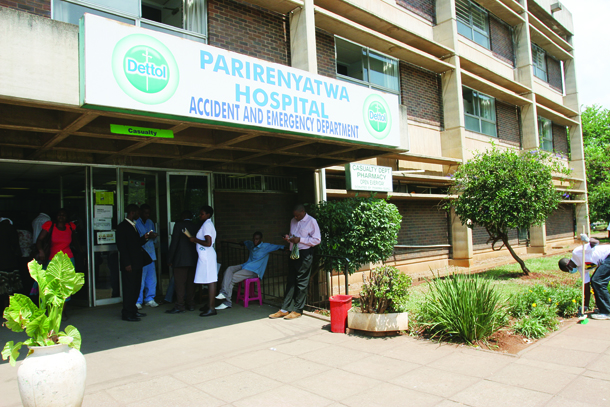
YESTERDAY, we reported that one of the country’s biggest referral hospitals, Parirenyatwa Group of Hospitals, was battling perennial water woes.
Newsday Comment
This has jeopardised the medical institution’s ability to fulfil its mandate of dispensing quality health services to patients.
This is a regrettable situation indeed, and the fact that this problem has persisted over a long time demonstrates that as a country, we have our priorities all mixed up.
This problem, among many others affecting the country’s public health institutions, should have been red-flagged given that it is part of the nation’s public service failings and classified as a top priority.
When patients come to the hospital, they expect to get a decent service, and accessing a precious resource like water should not be viewed as a luxury but a necessity.
The need to pour in more resources into such critical needs cannot be over-emphasised, but if the government and other key stakeholders like the Harare City Council do not prioritise it, then they would have failed dismally in dispensing what should be their key responsibility, because only a healthy nation can be a prosperous nation.
It is not a secret that the City of Harare’s capacity to provide water to all its clients has been largely compromised, and this demands that their water rationing exercise should be biased towards key areas like health.
- Chamisa under fire over US$120K donation
- Mavhunga puts DeMbare into Chibuku quarterfinals
- Pension funds bet on Cabora Bassa oilfields
- Councils defy govt fire tender directive
Keep Reading
Insufficient water supplies will seriously compromise health institutions’ ability to provide services to patients.
Critically, it is not a sustainable thing to have such a big referral hospital relying heavily on one source of water — a reservoir for that matter, because this should be used only in emergency cases.
This issue needs to be attended to as a matter of urgency to find a lasting solution to the water woes afflicting the hospital. There is need for an appreciation that virtually every function in a health institution is critical.
This issue is tied to the very lives of people and city fathers need to take note of that.
It does not help for the city to continuously complain about the erratic supply of water treatment chemicals when they should provide the way forward.











